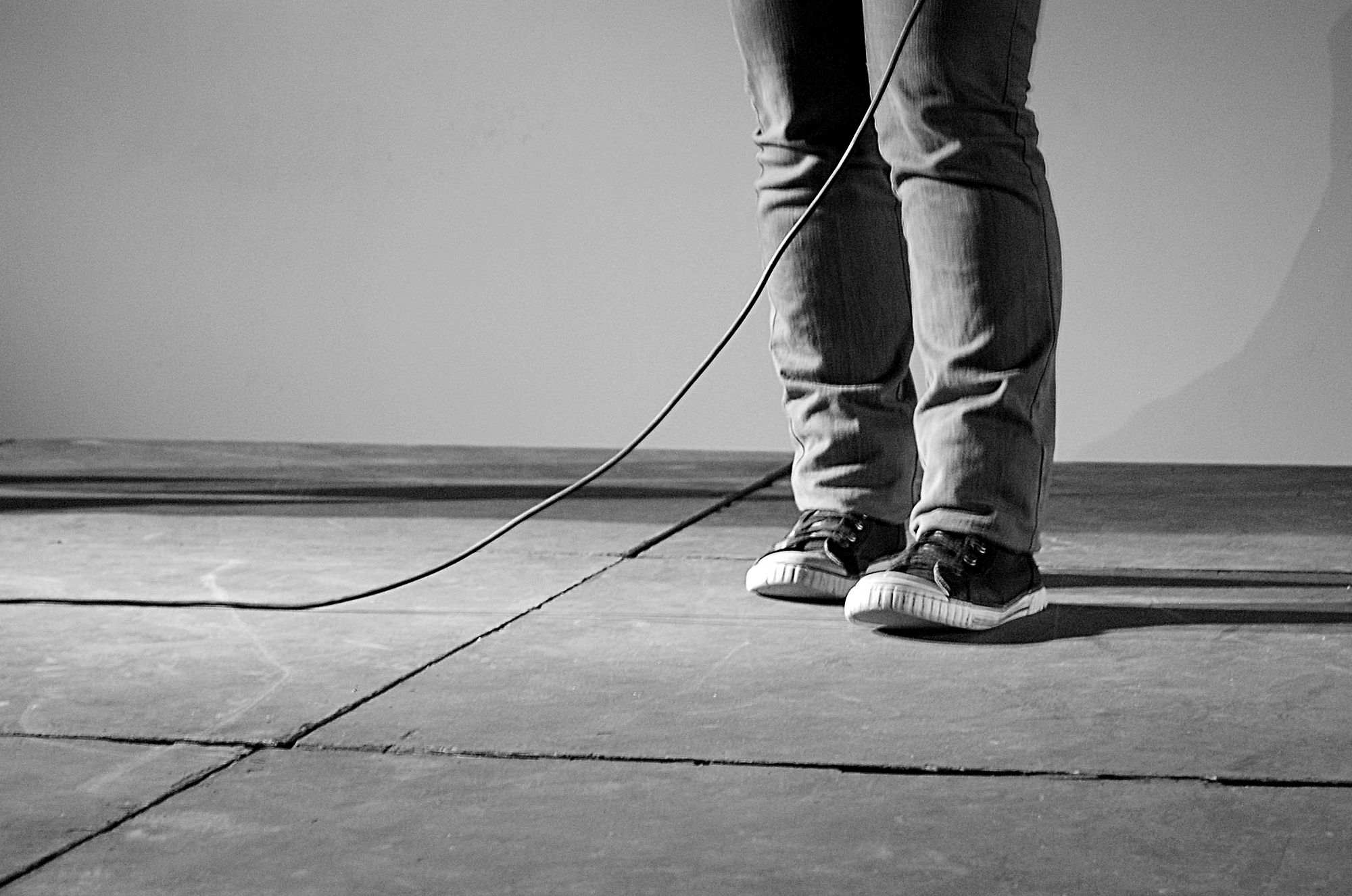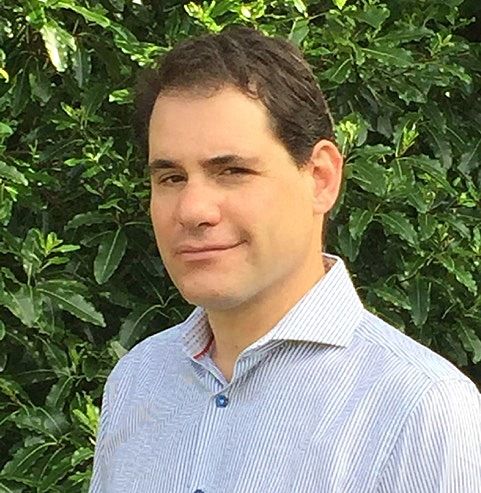Originally Sung: New Zealand Writers on Lyricism
In a three-part series, New Zealand writers tell us how they use different aspects of craft in their writing. Our second peek inside their toolbox: Lyricism.
In the second installment of our three-part series, New Zealand writers tell us how they use lyricism in their writing (the other installments are on voice and tension).
Lyricism can be loosely defined as the expression of emotion in an imaginative and beautiful way – the musicality of a piece of writing. There is also the more formal ‘lyric poetry,’ such as melodious Romantic poetry or the confessional poetry of the late 20th Century. We asked each writer how they use lyricism in their work – in essence a peek inside their toolbox. Here’s what they said.
Chris Tse
Helen Rickerby
Bryan Walpert
Antony Millen
Sarah Jane Barnett
Chris Tse
I’ve been at airports or on planes for the best part of 24 hours and I’ve started writing this piece on lyricism in an attempt to stay awake and to ward off jet lag. ‘Why not wait until you’re rested, Chris?’ I hear you ask. Well that would make sense, but I’ve been thinking about lyricism during my recent holiday in the United States. I need to turn my at times incoherent phone notes into something insightful before I fall into a post-travel funk. (Side note: I consider phone notes to be a very special example of lyricism, like flickers of last night’s dream punctuating your morning commute.)
My holiday started with Las Vegas’ infamous Strip – that sleepless playground stained with neon, takeaway booze and escort calling cards – where I found myself caught up in others’ dizzying rush to chase the next thrill. A week later, I stood awestruck outside Seattle’s breath-taking MoPOP building (the Museum of Pop Culture), which resembles iridescent metallic waves folding in on themselves. In Portland and San Francisco, I visited their respective flagship art galleries, both of which provided broad surveys of classical, contemporary and post-modern art. I could move from a room filled with antique silverware to another featuring a fluorescent artwork by Dan Flavin. Seeing the history of art presented in such a way makes you appreciate the many ways lyricism has been employed by artists throughout the ages.
It’s the crack that allows me to slip into a work and stand alongside the author’s own experience.
I could’ve had similar experiences here in New Zealand, but the feeling of dislocation that latches onto you when you’re an outsider in a city or country allows those experiences to filter through a different lens. That is how I feel when I think about the role of lyricism in art and literature. As a reader or a spectator, it’s the crack that allows me to slip into a work and stand alongside the author’s own experience. This can be especially helpful if the work deals with darker or ‘taboo’ subjects. The Lifted Brow recently published three new poems by Danez Smith, who described them as ‘very bottom identified.’ I can assure you that these are some of the most beautiful poems you’ll read about anal sex: ‘niggas better recognize / I’m God. / when my stomach rumbles / I eat a man in reverse.’
Lyricism by its very nature is intangible, and every person has a different response to how an artist or a writer has chosen to express their ideas, emotions or reflections. But it’s that intangibility that makes it so necessary – as well as drawing you in, it opens up an artwork or a piece of writing to interpretation.
In literature, it feels like we’ve seen a shift in recent years of what constitutes lyricism and the use of language in a ‘beautiful way,’ especially when writers tackle topics or issues that some might not consider ‘poetic.’ I think about what I consider to be beautiful ideas, things that I explore in my own work: sad pop songs about going out and dancing; the stillness of a motorway at 2am; the sometimes surprising intimacy provided by dating apps.
For the longest time, I was anxious about my writing not being lyrical enough. Beautiful enough. Meaningful enough. Over the years, this anxiety has tested my limits as a writer and encouraged me to embrace the shifting purpose of lyricism in contemporary poetry. Danez Smith’s poems above are just one example of the sort of lyricism that I find myself drawn to: direct, a little irreverent, maybe even confrontational, but completely imaginative and ‘new feeling.’
Helen Rickerby
A strict definition of lyricism probably means the musicality of a poem – lyric coming from lyre, to the music of which lyric poetry was originally sung. I think of lyricism as being to do with the way the language sounds in a poem, whether it flows, sounds beautiful. I don’t think of myself as a lyric poet, but I do care how a poem sounds, how it flows, and I spend quite a lot of time reading a poem out loud to iron out any unintended pot holes, if you will excuse my mixed metaphor.
But, like most things (being a contrarian) I have ambivalent feelings about lyricism. I think poetry shouldn’t just be made up of pretty words; it should be able to have ugly words too, and mundane and prosaic words. In a book I once read the author suggested that most of the words in a poem should have Anglo-Saxon origins, with just a smattering of words with a French origin. I was a bit surprised by this idea at first – in English the words that came from French tend to be the ‘fancy’ ‘poetic’ ones – the ones that were used by the ruling classes. But I came to see that poetry that uses too many fancy words becomes just too much – too rich, too gaudy. (Though now, having written that, it feels like a challenge.)
Google helpfully reminds me that it was Coleridge who described prose as ‘words in their best order’ and poetry as ‘the best words in their best order.’ Arguably prose poetry is the best of both worlds – it can still be intense and lyrical, but it doesn’t have to be. In my own work I’ve found myself moving towards prose poetry, partly because it has a sort of a freedom to be less lyrical, a bit more allowed to be discursive or clompy. Then again, maybe the separation is artificial.
Poetry, I think, is not necessarily more lyrical than prose, but we give it the space to be.
When I was at high school we were given several passages and asked to say which were poetry and which were prose – some of the prose had been given line breaks, and some of the poetry was turned into a paragraphs. I suppose we were meant to be able to differentiate the qualities of the language – presumably the poetry was more lyrical. I couldn’t tell the difference. If it looked like a poem, I read it as a poem.
I felt embarrassed about it at the time, but now I think it illustrates my grand unifying theory of what poetry is: that a poem is something that says it is a poem, and that we read as a poem – we read it more slowly, more richly, that we are alert to the surface and the depth of the language, to subtext and metatext. We expect it to mean something more than its literal meaning. It’s a bit like putting an object in art gallery: it makes you consider it more closely. So, poetry, I think, is not necessarily more lyrical than prose, but we give it the space to be.
Bryan Walpert
To continue on from my ideas on voice, the lyric, as M.H. Abrams tells us, is ‘any fairly short poem, uttered by a single speaker, who expresses a state of mind or a process of perception, thought and feeling,’ a poem offering what critic Anne Williams called a ‘unique angle of vision’ on the world. This characterization of lyric has been made less comfortable of course by poems which disrupt the sense of an individual speaker on the basis of one or another post-structuralist notions of the self, or lack there-of: Philosophically, the late 20th century suggested selves are fragmented, and are composed of the many overlapping and competing discourses – voices, if you will – around us. That is, when it comes to the self, it can be hard to know who is the ventriloquist and who is the dummy.
There are many poems that nod to this view of the world by breaking with the various logics of narrative, syntax and perspective. Still, if ‘angle of vision’ is true of the traditional lyric, with its constructed sense of the individual looking at some aspect of the world (trees, birds, one’s mother, a street lamp) and stumbling across epiphanies, it is also to my mind, though not to everyone’s, true of even the majority of poems that some might consider ‘post-lyric’ in their avoidance of speakers and epiphanies. As Robert Creeley describes the problem in his poem ‘The Pattern,’ ‘As soon as / I speak, I / speaks.’ Or as Jonathan Culler put it in critic-speak, ‘even poems which make it difficult to construct a poetic persona rely for their effects on the fact that the reader will try to construct an enunciative posture.’
The fetishizing of an evasive, ironic, juxtapositional, and fragmented style risks becoming a way to avoid engagement with the challenge of emotion…
The problem with voice is that if too closely held, it can become a crutch. On the one hand, the fetishizing of an evasive, ironic, juxtapositional, or fragmented style risks becoming a way to avoid engagement with the challenge of emotion, an evasion that in its own way might suggest an identification by the poet of her work with her life. In short, a poet may have too great a concern that what is said in a poem will reflect on the poet to her perpetual embarrassment at showing such vulnerability. On the other hand, the poet can have too great a stake in poem as a projection of his emotional life – that of the writer-self. It can be risky to over-identify with voice.
It is interesting that Ted Hughes suggests in his poem ‘The Ventriloquist’ (this is one way to read it, anyway) in his collection Birthday Letters that too great a power was given over to Sylvia Plath’s poetic voice, and that perhaps too great an identification was made between that voice and Plath the woman. In ‘The Ventriloquist,’ the ‘doll’ that ‘screamed…Daddy is no good’ is the one that ‘broke in that night / Killed you and was gone.’
Whether Hughes is being fair to Plath, this is the risk of all Confessionalism and one reason I get nervous when I see students become obsessed with Plath; I get equally nervous when it is only the rare example in a poet’s oeuvre that will truly commit to an emotional point of view. If style is inseparable from stance on the world in any given poem – that is, if we are speaking from rather than with a voice – then too-consistent a style suggests a rather consistent view of the world. This is also aesthetically problematic because the lyric tradition is marked by tension, which is the next subject of this series.
Antony Millen
Years ago, I read a novel in which the protagonist was purported to be a gifted poet, but the examples of the lad’s poetry were awful. Better to have left the poetry out and let us trust the narrator’s opinion of his talent!
The novelist’s prose wasn’t much better, but that was acceptable to me, revealing my own double standard. Apparently, I expected poetry to be lyrical, but I didn’t expect this of prose. Recently, I read Lee Child’s novel, Killing Floor. This was better prose – direct, distinctive, efficient, impacting, but … lyrical? Again, that’s a criterion for poetry, isn’t it?
Dylan Thomas’ drama, Under Milkwood, is lyrical. I wonder if Thomas cared if it made any sense, his focus was so much on the sound of the words in his tale. And it sounds great. I read it aloud, enjoying the words playing ‘trippingly on the tongue.’ It’s poetry, and by poetry, I mean it has content, form, and it sounds beautiful.
But prose can sound beautiful too. It can be lyrical. When I reviewed Ripple by Pirongia author, Tui Allen, I described her novel as lyrical, meaning her sentences flowed and her diction was informed by concern for sound as much as it was for meaning.
Creating lyricism in my work occurs in two stages. First, and ideally, words pour onto the page during my draft, inspired by muses, wine, caffeine, exhaustion, hours of preparation, or whatever other strategies I employ to configure a magical moment. This does happen. At times, the well is tapped and the words flow in such a way they will never need to be tampered with.
Aiming for lyrical quality to our writing is not about not sounding bad, but about sounding good, even great, even beautiful.
But this is not the norm. Word count must prevail during drafting and so, good words or bad, I put my hand to the plow and worry about lyricism later. Later means the revision stage. I work through multiple revisions, each one containing a different focus, fitting into macro and micro categories.
Macro categories include re-reading for plot holes, identifying repetitive or extraneous information or scenes, reviewing notes to discern what important matter should be inserted and determining where. Micro categories include copy-editing, checking consistency of character dialogue, searching for ticks or repetitive words or phrases, and considering my diction in terms of meaning and lyricism.
Considering my diction means re-reading every sentence in my draft and asking questions of it: What is the sentence’s purpose? How does it fit in the story in terms of length and rhythm? Is it active or passive? Is it brief and direct enough? Are these the best words in communicating my meaning and in bringing pleasure to my reader’s ear?
It’s this last question that challenges a writer to aim for lyricism. None of us want to sound bad – to be caught out with grammar or punctuation errors. But that shouldn’t be our baseline. Aiming for lyrical quality to our writing is not about not sounding bad, but about sounding good, even great, even beautiful.
Sarah Jane Barnett
I was listening to an interview with Bill Manhire the other day. He was talking about his long collaboration with composer Norman Meehan and how he’d initially been reluctant to have his poems set to music, because they already had a music of their own. It made me think about how I revise. First, I read a poem for meaning – it has to make logical sense – and after that, I read it out loud to hear the musicality of the words. The song, I suppose.
Often I’m trying to hear parts of the poem that feel chewy – like something stuck in my teeth. When a line or an image works for me it feels smooth. It’s like running my hand over a smooth surface, except the sensation happens in my chest and head. During this process, I revise and recite until each word feels smooth. This is not to say that it always does – in my last collection WORK there is still a word that feels wrong to me. That one word makes me so frustrated! I tried changing it to another word, and then another word, but in the end I had to leave it like an uncomfortable hangnail in my poem. Of course, the feeling of smoothness changes over time; when I revisit poems I wrote years ago they feel pretty lumpy now.
I'm not sure lyricism should require beauty; an ugly poem – which is not to say bad, but maybe jarring and discordant – should be able to be lyrical. Maybe then, lyricism is more about a poem's sense of its own ‘rightness.’
That smoothness is how I understand lyricism, which I suppose I've always associated with beauty. I won't lie – I want to write poems that feel beautiful to me. That said, the need to be beautiful is an unfair expectation to put on a piece of writing. I'm not sure lyricism should require beauty; an ugly poem – which is not to say bad, but maybe jarring and discordant – should be able to be lyrical. Maybe then, lyricism is more about a poem's sense of its own ‘rightness.’
In a podcast I was listening to recently someone used the example of Michelangelo’s David to explain how art is created. They said Michelangelo didn’t sculpt David from stone, but that David was always in the stone and Michelangelo simply had to chip away to reveal him. That is what I mean by 'rightness' – the Platonic and somewhat trite idea that the form of the poem preexists and that my work is to fiddle with words until it emerges. Maybe I like the idea because it relieves me of sole responsiblity for the creative act. It also feels true, though, to my experience of writing.
I've been talking about poems, but having written long prose poems, critical work, and creative non-fiction, I know that lyricism isn’t the purview of poetry. I often think about Cormac McCarthy’s The Road where his spare use of punctuation and capitalisation, and his focus on sound, produced a lyrical novel. So while I was following McCarthy's story of the boy and the man, and connecting with his themes, I could also hear the song of the writing. The novel felt like it couldn't have been written any other way.
The feature photo Singstep by Adriano Afonso is used under a Creative Commons CC-BY License.
Read the other installment in this series: Voice and Tension.






